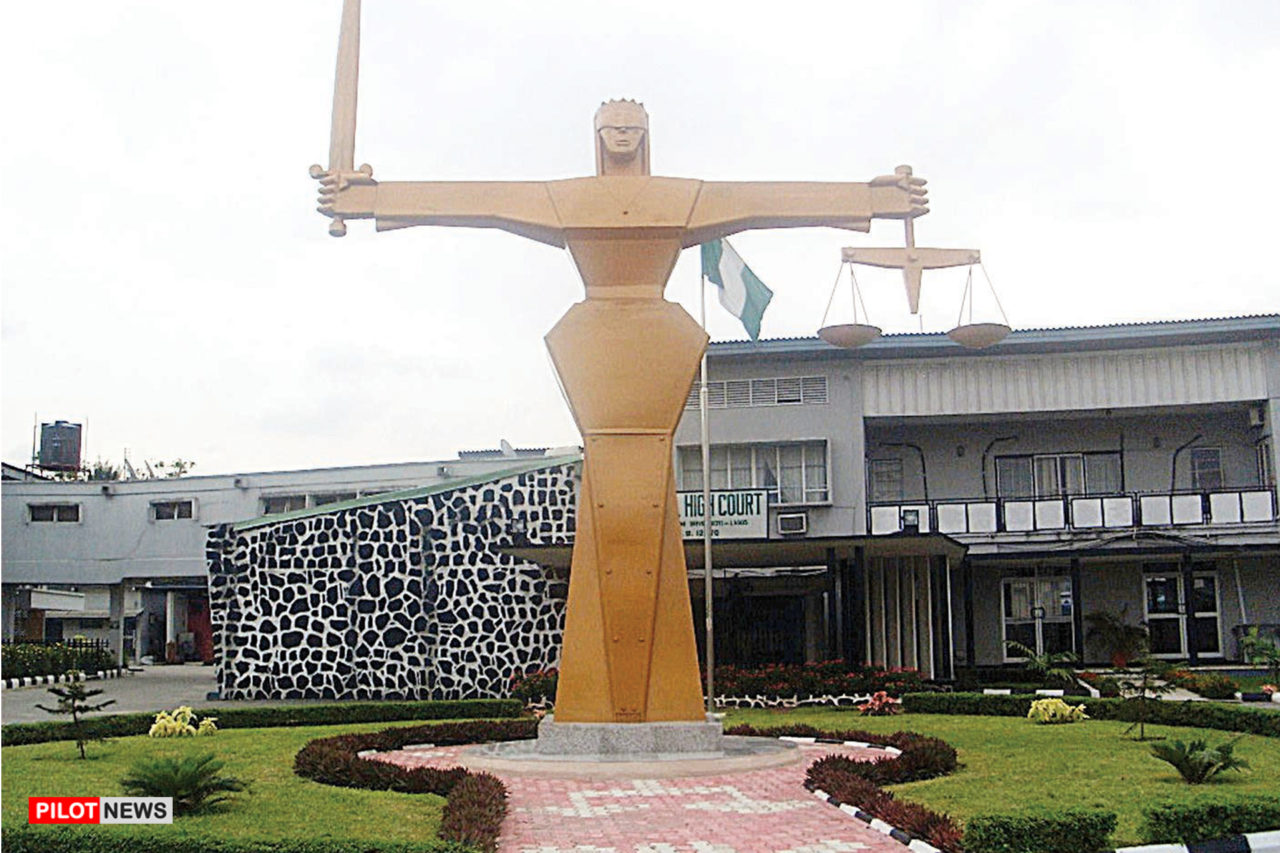Legal News
Texas Healthcare Operators Arrested for Illegally Dispensing Nearly Four Million Opioid Pills

- Photographer alleges he was forced to watch Megan Thee Stallion have sex and was unfairly fired - April 25, 2024
- Navigating Bias and Ethics in AI-Powered Cybersecurity: The BRACE Framework Approach - April 17, 2024
- Body of O.J. Simpson to be cremated this week; brain will not be studied for CTE - April 16, 2024
Business
Malabu Feud: Nigeria Loses $1.7 billion JP Morgan Case

Nigeria on Tuesday lost its $1.7 billion claims against JP Morgan Chase Bank over the transfer of proceeds from the sale of OPL 245 in the controversial Malabu oil deal.
Judge Sara Cockerill ruled Tuesday that the Nigerian government couldn’t show that it had been defrauded in the case.
In the suit, Nigeria is claiming more than $1.7 billion for the bank’s role in the controversial deal. Nigeria also alleges that JP Morgan was “grossly negligent” in its decision to transfer funds paid by oil giants Shell and Eni into an escrow account controlled by a former Nigerian oil minister, Dan Etete.
Earlier in February, Nigerian lawyer, Roger Masefield, argued that the nation’s case rested on proving that there was fraud and JP Morgan was aware of the risk of fraud.
“The evidence of fraud is little short of overwhelming,” the lawyer told the court.
“Under its Quincecare duty, the bank was entitled to refuse to pay for as long as it had reasonable grounds for believing its customer was being defrauded.”
Quincecare refers to a legal precedent whereby the bank should not pay out if it believes its client will be defrauded by making the payment.
Judge Cockerill said Tuesday that by the time of the 2013 payments, the bank was “on notice of a risk” of fraud.
“There was a risk – but it was, on the evidence, no more than a possibility based on a slim foundation,” the judge ruled.
- Photographer alleges he was forced to watch Megan Thee Stallion have sex and was unfairly fired - April 25, 2024
- Navigating Bias and Ethics in AI-Powered Cybersecurity: The BRACE Framework Approach - April 17, 2024
- Body of O.J. Simpson to be cremated this week; brain will not be studied for CTE - April 16, 2024
Legal News
Kano State Government File Fresh Charges Against Hanifa’s Killer

Kano State Government has filed a fresh five-count charge to arraign Abdulmalik Tanko, Hanifa’s killer and his accomplices before a Kano State High Court.
Aisha Mahmoud, State’s Director Public Prosecution who disclosed this to newsmen after the case came up for mention at the Magistrate court explained that the government filed the charge at the High Court because the Magistrate court lacks the jurisdiction to handle the offences filed against the defendants due to the gravity of offences committed.
Aisha Mahmoud pointed out that an appeal was made to the court to remand the accused persons pending the hearing of the case at the high court.
The Magistrate court presided by Chief Magistrate Mohammed Jibrin granted the prayers and ordered the accused persons to be remanded in custody.
Chief Magistrate Jibril however adjourned the case to February 9, 2022.
The charges filed against Abdulmalik and his accomplice borders on criminal conspiracy, kidnapping, confinement and culpable homicide contrary to section 97, 274, 277, 221 of the Penal Code.
Recall that Abdulmalik Tanko and his accomplices are accused of kidnapping and Killing his five-year-old student Hanifa.
But, Abdulmalik Tanko, Hanifa’s killer confessed that after kidnapping his 5-year-old pupil, he took her to his house where he contacted her relatives and demanded a ransom of ₦6 million.
- Photographer alleges he was forced to watch Megan Thee Stallion have sex and was unfairly fired - April 25, 2024
- Navigating Bias and Ethics in AI-Powered Cybersecurity: The BRACE Framework Approach - April 17, 2024
- Body of O.J. Simpson to be cremated this week; brain will not be studied for CTE - April 16, 2024
Legal News
Court Stop Federal Government From Deductions In The The Federation Account

A Federal High Court in Abuja on Wednesday stopped the federal government from further making deductions from the federation account to fund its own agencies not listed for direct allocation in the 1999 constitution (as amended).
Rivers State, in the suit marked FHC/ABJ/CS/511/2020 and instituted on its behalf by former president of the Nigerian Bar Association NBA, Joseph Daudu (SAN), had challenged the decision of the federal government to allocate funds directly from the federation account to fund some of its agencies, arguing that the decision violated section 162 of the 1999 constitution.
The Rivers State government also claimed that by the federal government’s unlawful action, it has deprived it substantial revenue from the federation account.
It prayed the court to nullify unlawful fund allocation from the federation account PTF.
The plaintiff also claimed that the levies imposed on companies operating in Nigeria by the federal government to be paid directly to the Nigeria Police Force Trust Fund instead of the Federation Account was also illegal, unlawful and unconstitutional because it has also deprived it of substantial revenue accruable to the state as taxes.
Justice Ahmed Mohammed in his judgement held that section 161 and section 162 of the 1999 constitution were glaringly breached by the federal government in making direct allocation to the Police Trust Fund from the federation account.
The court held that section 162 of the constitution is clear and unambiguous to the effect that only the federal, states and local governments shall be allocated funds directly from the federation account.
It added that section 4 of the Nigeria Police Trust Fund Act 2019 relied upon by the federal government to justify the unlawful deductions from the federation account is inconsistent with section 162 of the 1999 constitution which recognizes only the federal, states and local governments.
The judge ordered that the fund belonging to Rivers State which was used to fund Nigeria Police Trust fund by the federal government should be refunded to the state, but declined to extend a similar order of refund to the 35 remaining states on the ground that they were not parties in the suit and that Rivers State, as the plaintiff in the matter, did not file it on behalf of others.
The court upheld all arguments of counsel to Rivers State, Joseph Daudu (SAN), that where the provisions of the 1999 constitution are clear and unambiguous, they must be given their ordinary meanings
Justice Mohammed also agreed with Daudu that the federal government was completely wrong in the interpretation given to section 4 of the Nigeria Police Trust Fund Act to the effect that the Nigeria Police Force was established for the federal government alone and as such the funding is solely on the shoulder of the federal government.
The judge agreed with the plaintiff that under the relevant laws, such levies are supposed to be paid directly to the federation account and not to any federal government agencies.
“I have carefully perused the issues raised by the plaintiff and I agree that no other person or entity is permitted to benefit from direct fund allocation from the Federation Account.
“Section 4 of the Nigeria Police Trust Fund Act 2019 relied upon by the defendant to make direct fund allocation from the Federation Account is untenable as it runs contrary to section 162 (3) of the 1999 Constitution which expressly stated that the federal government, state governments and local governments shall derive direct fund allocation from the Federation Account,” he said.
- Photographer alleges he was forced to watch Megan Thee Stallion have sex and was unfairly fired - April 25, 2024
- Navigating Bias and Ethics in AI-Powered Cybersecurity: The BRACE Framework Approach - April 17, 2024
- Body of O.J. Simpson to be cremated this week; brain will not be studied for CTE - April 16, 2024
-

 Column1 week ago
Column1 week agoNavigating Bias and Ethics in AI-Powered Cybersecurity: The BRACE Framework Approach
-

 News1 week ago
News1 week agoTrump trial update: Trump rebuked by judge for speaking during jury selection — and 7 jurors are seated
-

 Lifestyle1 week ago
Lifestyle1 week agoBody of O.J. Simpson to be cremated this week; brain will not be studied for CTE
-

 Education1 week ago
Education1 week ago11 Communication Students Awarded Scholarships at TSU’s Commweek
-

 Africa1 week ago
Africa1 week agoDonors raise more than 2 billion euros for Sudan aid a year into war
-

 Africa1 week ago
Africa1 week agoSA users of Starlink will be cut off at the end of the month
-

 News1 week ago
News1 week agoNigeria: chibok abduction anniversary spurs demands for justice
-

 News1 week ago
News1 week agoNigeria suspends permit of 3 private jet operators










